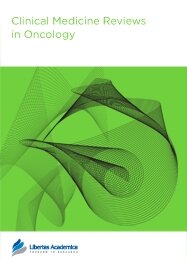

Publication Date: 09 Jan 2012
Type: Review
Journal: Clinical Medicine Reviews in Oncology
Citation: Clinical Medicine Reviews in Oncology 2012:4 1-14
doi: 10.4137/CMRO.S3370

Current studies of T-cell acute lymphoblastic leukemia (T-ALL) show promise for improving the treatment for this previously difficult to cure neoplasm. This has been facilitated by the increased understanding of the molecular basis of leukemogenesis in T-cells as well as advanced analytical technologies in modern molecular biology. Combined with intensive conventional therapies, novel drugs as well as improved diagnostic protocols have been developed for the rational therapy of T-ALL, resulting in a cure rate up to 80%. An understanding of the detailed molecular mechanism of action for T-ALL specific alterations in gene expression has led to the design and development of targeted molecular therapies of this aggressive cancer. Several novel, target-specific drugs are now available, including mitotic inhibitors with more specificity and potency for growth inhibition, γ-secretase inhibitors (GSIs) for leukemic NOTCHI signaling blockage in T-ALL as well as growth inhibition, tyrosine kinase inhibitors for correction of uncontrolled proliferation caused by certain genetic lesions, and inhibitors of BCL2 proteins leading to sensitization of leukemic cells to apoptosis induction. Some of these drugs are under development in the different phase of clinic trials, but others are currently included in successful therapeutic protocols, and, as hoped, they cause the remission of patients that suffered from certain types of T-ALLs, and who previously were poor responders using conventional treatment protocols. However, these new approaches still often need to be combined with highly toxic conventional treatment to obtain satisfactory overall outcome. The encouraging achievements in targeted molecular therapy challenge researchers to achieve no-event complete remission in T-ALL patient by developing novel therapies with even more specific targeting and efficacy to minimize complications. Finally, with the development of targeted molecular therapy, rational approaches for individually tailored treatment of T-ALL patients in the near future now may be an achievable goal.
RIS citation (ENDNOTE, REFERENCE MANAGER, PROCITE, REFWORKS)
BibTex citation (BIBDESK, LATEX)

I was requested to contribute a review. The objectives, timelines and process were all extremely reasonable and fit in well with my knowledge base and my work as well as my schedule. The process was quite seamless and no paper was ever exchanged--everything was completed on-line. Thanks for the opportunity to make this contribution.
Facebook Google+ Twitter
Pinterest Tumblr YouTube